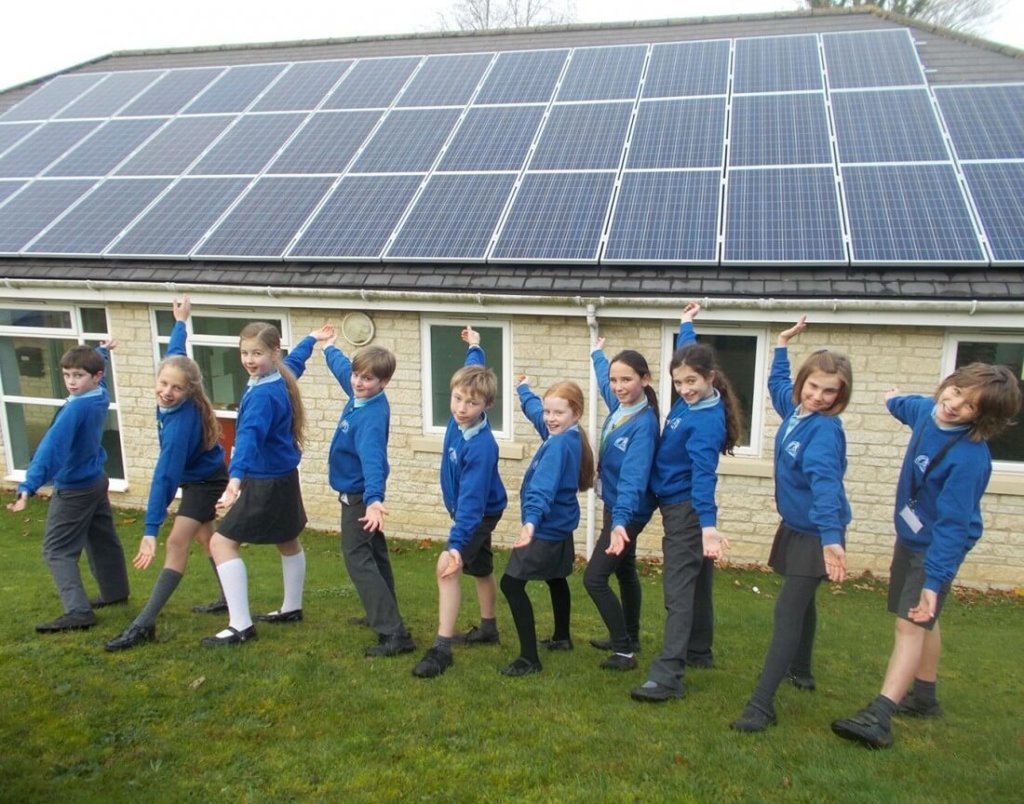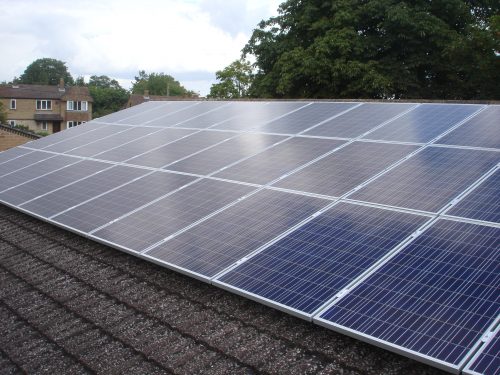Record-breaking solar generation in the UK – and at the Low Carbon Hub!
On Tuesday 28 April 2020 the UK’s electricity grid hit a new record for the longest coal-free period since pre-industrial times (previously been held at 18 days), with coal power plants offline from midnight on Friday 10 April.
This coal-free period has been due to maximised levels of solar energy generation, due to high levels of sunlight over the previous few weeks – as well as a general increase of solar installations in the UK over the past year.
At the end of April we also saw a new daily peak solar generation record of 9.68GW at 12:30 on Monday 20 April 2020, and a weekly solar generation record at 485.41GWh.
How have the Low Carbon Hub’s solar installations been performing?
In line with the UK’s increased solar generations, we’ve also seen above expected solar generation figures from our Low Carbon Hub solar installations – which we host in partnership with schools, businesses, and communities across Oxfordshire.

In March 2020 we had forecasted generation of 217,034 kWh from our solar installations. We actually generated 272,790 kWh, giving us 55,756 kWh or 26% more electricity generated than expected.
In April 2020 we had forecasted generation of 347,634 kWh from our solar installations. We actually generated 409,040 kWh, giving us 61,406 kWh or 18% more electricity generated than expected.
This isn’t an overall record generation for us at the Low Carbon Hub – we would always expect to see higher generation figures in June and July due to longer days and more sunlight. However, as a percentage of forecast, March 2020 has been a record month for us – the month we’ve generated most above what we expected to.
As a comparison, in March 2019 we forecast 206,258 kWh of generation, and actually generated 233,529 kWh – 13% above forecast. In April 2019 we forecast 329,287 kWh and actually generated 331,662 kWh – 1% above forecast.
April 2020 is also a record-breaking month in its own way, being the first month ever the Low Carbon Hub has generated over 600,000 kWh in total (solar and Sandford Hydro combined), with a total 612,788 kWh generated. Our previous best month for total generation was 564,598 kWh.
Is the COVID-19 lockdown having an impact?
This increased solar energy generation (and, therefore, reduced usage of energy generation from burning coal) is down to high levels of sunlight in March and April 2020. It’s also because we’ve continued to increase the numbers of solar installations we host and manage over the past few years (as has the UK in general), so we now have more solar capacity to be generating electricity when the weather conditions are ideal.
The Low Carbon Hub has increased its solar generating capacity from 671 kW at the beginning of 2015 to 3,530 kW in April 2020 (an increase of 426%).
Meanwhile, according to the Department for Business, Energy and Industrial Strategy, the UK solar capacity as a whole has increased from 5,841 MW at the beginning of 2015 to 13,448 MW in April 2020 (an increase of 130%).
However, we are also seeing changes in energy usage due to the COVID-19 lockdown. The general trend is a reduction in energy usage across the board, as many businesses (including manufacturing businesses with a high energy usage) are not currently active, and transport has vastly reduced – although household energy usage has increased. This general energy reduction has helped to extend the UK’s run without using any coal power.
Could you host a Low Carbon Hub solar installation?
If you know a school, business, or community building in Oxfordshire which you think may be suitable for solar rooftop installation, contact our concotact our Projects Manager to find out more.
Read next…

Record-breaking solar generation in the UK – and at the Low Carbon Hub!
On Tuesday 28 April 2020 the UK’s electricity grid hit a new record for the longest coal-free period since pre-industrial times (previously been held at 18 days), with coal power plants offline from midnight on Friday 10 April. This coal-free period has been due to maximised levels of solar energy generation, due to high levels […]
